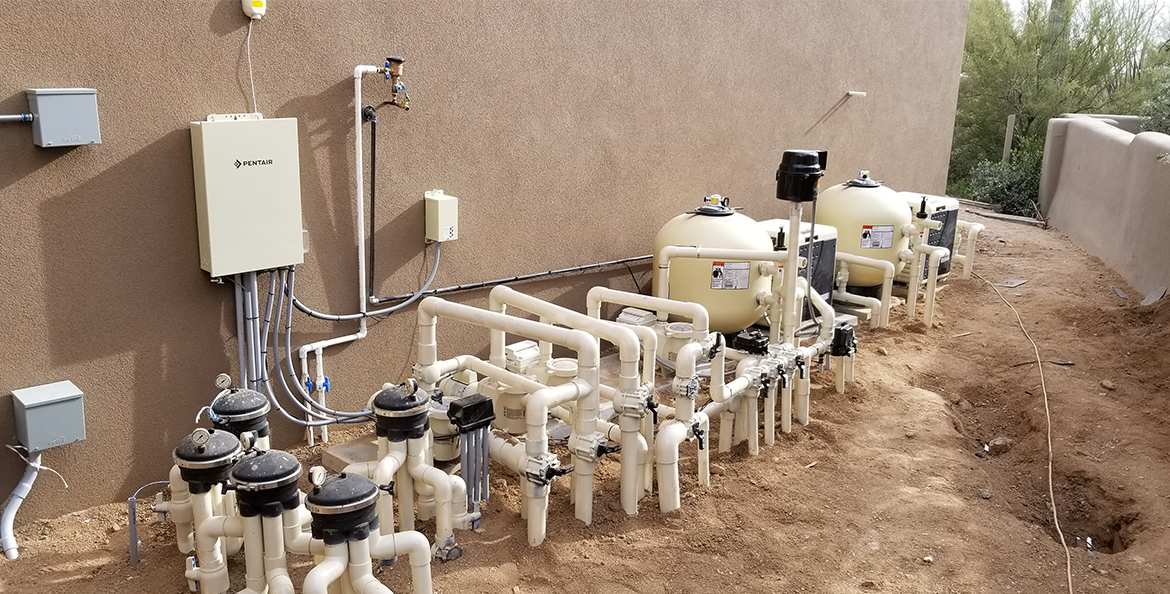Professional Pump Repairs & Installation Providers: Enhancing Your Water System's Effectiveness
Understanding the Key Parts of Effective Water Filtering Equipments

Importance of Water Filtering Systems
Water purification systems play a crucial function in guaranteeing accessibility to risk-free and tidy drinking water by properly eliminating impurities and pollutants. These systems are important in addressing the expanding issues over water quality and the prospective wellness risks connected with consuming contaminated water. By utilizing numerous filtering mechanisms such as reverse osmosis, activated carbon, and UV sanitation, water filtration systems can effectively get rid of harmful compounds like microorganisms, infections, hefty steels, and chemicals from the water system.
Moreover, water filtration systems assist to enhance the taste and smell of water by removing chlorine, debris, and various other pollutants that can impact its quality. Water Filtration Systems. This improvement in water top quality not only makes it more palatable yet also encourages individuals to consume a sufficient amount of water daily, promoting better hydration and overall health
Kinds of Filtration Elements

Physical filters are designed to physically stress out impurities from the water. These filters can be made from products like ceramic, carbon, and even sand, and they work by trapping bits bigger than the filter's pores as water travels through.
Chemical filters utilize numerous chemical processes to remove pollutants from the water. Examples include activated carbon filters, which adsorb pollutants, and turn around osmosis membrane layers, which use stress to different contaminants from the water.
Organic filters make use of living organisms like microorganisms or algae to damage down natural issue and contaminants in the water. These filters are usually made use of in wastewater therapy plants or natural water filtration systems.
Comprehending the various sorts of purification elements is crucial for picking the most suitable water filtration system for details purification needs.
Feature of Sediment Filters
Debris filters play a vital role in water purification systems by successfully capturing strong particles put on hold in the water. These filters are typically the first line of protection in a purification system, removing bigger fragments such as sand, silt, dust, and rust before the water moves via finer purification phases. By trapping these debris, the filters avoid them from reaching downstream components, thus extending the lifespan and efficiency of the entire system.
The function of debris filters is crucial in keeping water top quality and shielding delicate equipment from damages brought on by particles. In addition, by getting rid of visible fragments, debris filters improve the clarity and preference of the water. Routinely cleaning up or changing sediment filters is important to ensure optimum efficiency. Ignoring this upkeep can bring about blocking, lowered water flow, and endangered filtering performance. In general, debris filters are crucial elements that add visit this website considerably to the performance of water filtration systems.
Function of Activated Carbon Filters
Playing a crucial function in water filtering systems, turned on carbon filters contribute in eliminating contaminations and impurities from the water. These filters are made to adsorb and catch a wide variety of pollutants, including chlorine, volatile organic compounds (VOCs), pesticides, and herbicides. The activated carbon material has a large area, enabling the effective trapping of contaminants through a process called adsorption. As water goes through the filter, the activated carbon attracts and holds onto the impurities, guaranteeing that the water that comes out on the other side is cleaner and safer for consumption.
Turned on carbon filters are very reliable at enhancing the preference and smell of water by lowering chemicals that can impact its high quality. They are likewise efficient in getting rid of certain heavy metals like lead and mercury. In addition, these filters can assist avoid the buildup of bacteria and algae in water, more enhancing its total top quality. Because of their adaptability and dependability, triggered carbon filters are a key element in ensuring that water is purified to the highest criteria prior to reaching customers.
Recognizing Reverse Osmosis Solutions
Reverse osmosis systems are sophisticated water filtering systems that utilize an advanced procedure to get rid of impurities and contaminations from alcohol consumption water. These systems function by using stress to the water, requiring it with Homepage a semi-permeable membrane layer.
Furthermore, reverse osmosis systems are fairly low-maintenance and can be installed under the sink or in a central filtering system, offering convenient accessibility to clean water throughout the home. Overall, recognizing exactly how reverse osmosis systems work can help people make notified decisions about their water filtration demands.
Conclusion
In final thought, reliable water filtering systems are critical for guaranteeing clean and risk-free alcohol consumption water. By understanding the function and function of each part, individuals can make informed choices when picking a water purification system.
Water filtration systems play a critical duty in guaranteeing accessibility to secure and tidy drinking water by successfully getting rid of impurities and pollutants. By using numerous purification devices such as reverse osmosis, activated carbon, and UV sterilization, water filtering systems can successfully remove harmful substances like bacteria, viruses, heavy metals, and chemicals from the water supply.
Sediment filters play an important duty in water purification systems by effectively capturing strong fragments put on hold in the water (Well Pump you could look here Replacement).Playing a crucial role in water filtration systems, turned on carbon filters are instrumental in removing contaminations and impurities from the water supply.Reverse osmosis systems are innovative water purification systems that utilize an advanced process to eliminate pollutants and pollutants from drinking water